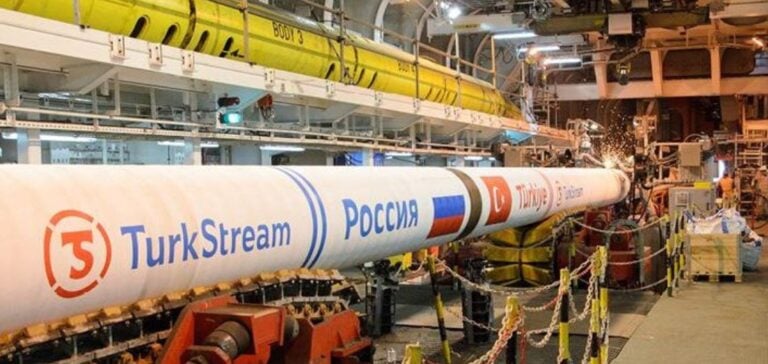The volume of natural gas transported by Russian pipelines to Europe fell by 8% in April compared with March, totaling 2.21 billion cubic meters (Bcm). Despite this drop, volume remains 11% higher than the previous year, according to S&P Global Commodity Insights’ analysis published on May 3.
Impact of TurkStream
The TurkStream, which transports Russian gas to South-East Europe via Turkey, saw its flows decrease from 43 million cubic meters per day (m³/d) in March to an average of 38 m³/d in April. This pipeline is a key artery for Hungary and Serbia, two of the main beneficiaries still closely linked to Moscow.
Agreements and dependencies
Hungary, which signed a 15-year agreement with Gazprom in September 2021 for an annual supply of 4.5 Bcm, continues to import significant volumes of Russian gas. In 2023, Russian exports to Hungary exceeded 5.5 Bcm. TurkStream gas is also transported to Romania, Greece, Northern Macedonia and Bosnia-Herzegovina.
Transit via Ukraine and future prospects
Gazprom continues to deliver gas to Europe via Ukraine despite the ongoing war, with stable deliveries so far in 2024. However, the five-year gas transit contract between Russia and Ukraine, signed in December 2019, expires at the end of 2024, and the future of transit remains uncertain.
European Union sanctions and strategies
EU Energy Commissioner Kadri Simson said in March that the EU had “no interest” in extending the trilateral agreement with Russia and Ukraine, and planned to continue reducing Russian gas and LNG imports. Russian LNG exports to the EU increased slightly in 2023, and further measures could restrict Russian LNG access to EU national gas systems.
The reduced flow of Russian gas to Europe reflects a complex supply and energy policy dynamic. Future decisions on sanctions and transit agreements could redefine European energy relations with Russia.






















